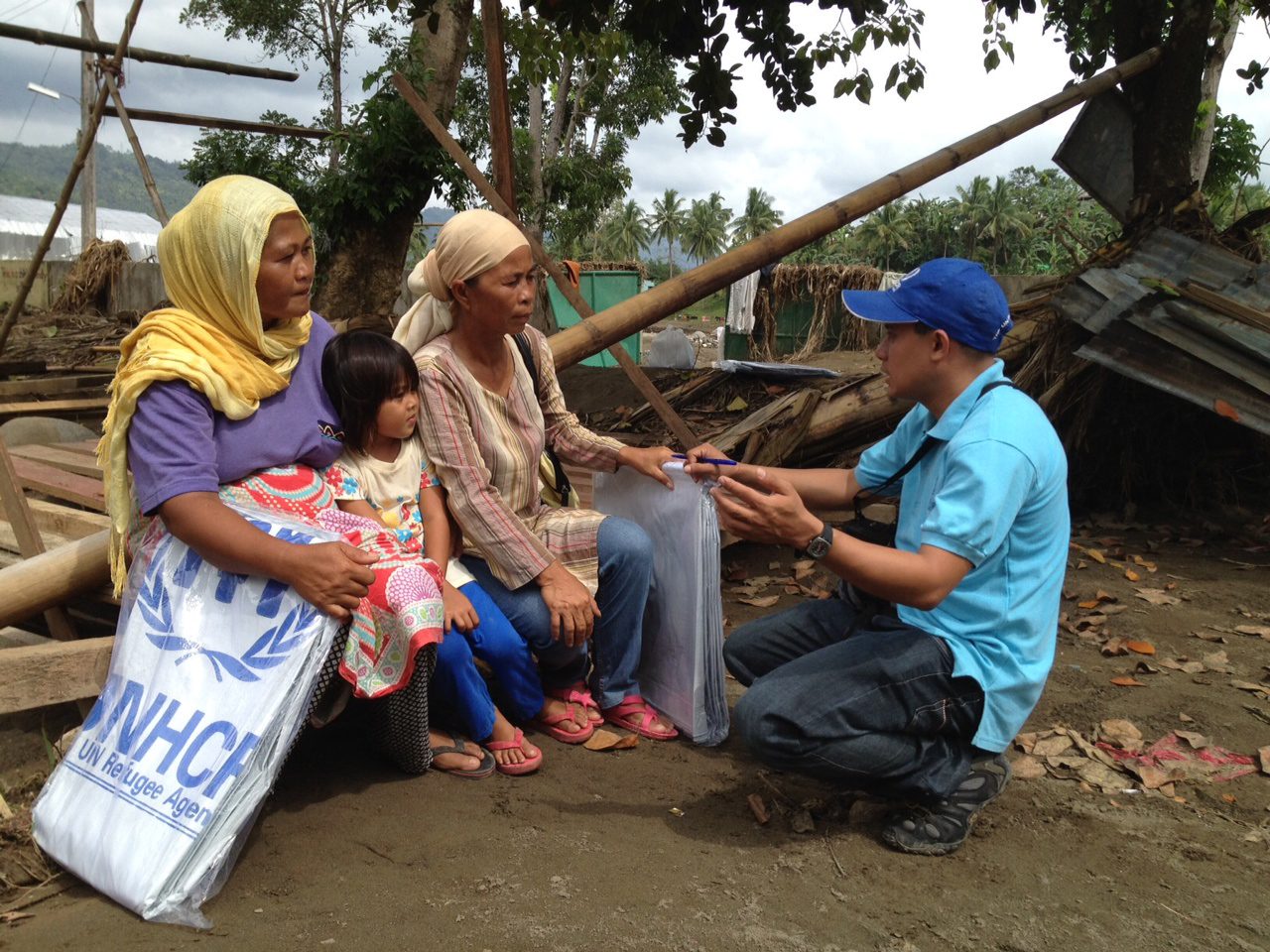First UNHCR relief flights and convoys arrive in Pakistan
First UNHCR relief flights and convoys arrive in Pakistan

ISLAMABAD, October 17 (UNHCR) - The first of tonnes of tents, blankets and other relief items for Pakistan's earthquake victims has arrived from the UN refugee agency's warehouses around the world, including neighbouring Afghanistan.
On Monday, a convoy of more than 40 trucks was due to arrive at UNHCR's warehouse in Peshawar in Pakistan's North-West Frontier Province (NWFP) after setting off more than 30 hours earlier from Afghanistan's capital, Kabul. The trucks are carrying more than 1,500 tents, 50,000 pieces of plastic sheeting, 20,000 blankets, and 10,000 jerry cans for the victims of the October 8 earthquake.
UNHCR officials in Kabul said the Afghan Government had been very helpful in authorizing the release of the relief supplies and in facilitating their transport to Pakistan. The World Food Programme had provided most of the trucks for the relief convoy, with some additional ones hired commercially.
Over the weekend, the first UNHCR relief flight touched down at Islamabad airport with 357 rolls of large plastic sheeting from the agency's warehouse in Copenhagen. More flights were expected later Monday and over the next few days from Jordan, Dubai and Turkey.
In all, these first shipments of UNHCR relief items from abroad will include more than 15,000 tents, nearly 70,000 plastic sheets, 220,000 blankets, over 30,000 jerry cans and 15,000 kitchen sets.
They will supplement existing stocks in Pakistan, where UNHCR has almost emptied its warehouses. Some 2,400 tents and thousands of blankets, plastic sheets and other items have already been sent to the affected population around Mansehra, about three hours' drive from Islamabad.
"Winter is closing in and temperatures in some affected areas are already below zero. If they don't get tents and blankets immediately, these people will die," said UNHCR's Representative in Pakistan, Guenet Guebre Christos. "We're doing whatever we can to bring aid to the people and if necessary, to bring people to the aid."
Under the UN-coordinated response, UNHCR is leading efforts on camp management in the event of mass displacement after the earthquake. Non-governmental partners in this group include Oxfam, Concern, Focus and the American Refugee Committee.
"We're stressing to the international community that we have to help people in remote and difficult areas, so that they are not forced to leave their villages in search of assistance," stressed UNHCR's Michael Zwack, who heads the camp management group. "We have to assist them where they are. If everyone leaves his or her home area, the mass displacement could complicate relief efforts and possibly create a man-made crisis."
At the same time, he added, "Our staff in Mansehra, Balakot, Batagram, Shangla and Muzaffarabad are identifying areas where homeless people have gathered spontaneously. We need to organise them so that they can receive basic assistance like water and sanitation in a coordinated way."
Technical specialists have also been deployed in response to the Pakistan government's request for UNHCR and its partners to set up temporary camps for homeless, vulnerable people in areas like Balakot, Batagram and Muzaffarabad.
"Our teams are on the ground with the government and military to identify suitable sites for temporary camps," said Zwack, noting that basic criteria like physical safety, easy road access, water availability and security must be met. He added that the camps would exist for three to six months, giving people some time to recover and rebuild their damaged homes next spring.
A total of 4 million people have been affected by the earthquake, including 1 million in dire need of assistance and more than 2 million homeless. So far, the UN has only received pledges of some US$56 million out of the US$312 million it needs to help earthquake victims over the next six months.







